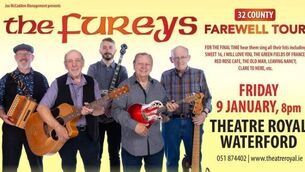How We Win Without Losing Ourselves

The Pride of the Déise festival is ongoing in Waterford at the moment.
Most of my work with Hope and Courage Collective is about meeting people where they’re at on migration, LGBTQIA+ rights, and more, but not leaving them there.
I’ve spent over a decade studying strategic communications and using stories to shift hearts, minds, and systems towards a more equal future. I know the power of language. I’ve seen how values based stories, and reframing, can mobilise thousands of people and pull people away from far-right pipelines towards fighting for a better future for everyone.
This means that when I feel my rage bubble up, like when a loved one or an acquaintance repeats some trope or myth they saw online and instead of shutting them down, I have to take a deep breath and help them see the world through shared values.
Reframing the issue. Moving blame away from scapegoated communities and placing it where it belongs, painting a picture of a future where we all belong and making sure they see themselves in the vision.
There’s a phrase often used in the strategic communications world: “You can choose to be right, or you can choose to be happy.” I’d add: you can choose to be right, or you can choose to actually be effective.
If we want to shape the kind of world we dream of, we have to let go of the instinct to win arguments, and instead get better at winning people over.
When people see two groups in conflict, they tend to isolate both and distance themselves and a false ‘centre’ gets created, a ‘both sides’ worldview that actually undermines the ability of people to engage with and understand the world through their values.
When people see us dive head first into the culture wars that were created by billionaires, and perpetuated by social media companies, to keep us fighting with each other in the comments sections.
Instead, we need to draw persuadable people (which is most people) over and make it us and them against the problem, rather than us vs them.
While we’ll never win over the hardened far-right, and shouldn’t waste our time trying, we can win over the people who repeat their narratives out of ignorance and fear.
This means we have to deprogram ourselves too - because the mass manipulation of social media is designed to pull us into outrage, while tech companies profit off far-right pipelines.
We can’t really blame loved ones for falling into traps that were set for them and we certainly can’t allow ourselves to be used to boost the outrage machine and the profits of big tech.
The way we pull people back? Real-world conversations. Relationships. An acceptance of nuance and ‘the grey’. A little bit of trust. Stories. Vision.
But here’s the thing: I’m nonbinary and bisexual.
I ask people to use they/them pronouns for me. And navigating these conversations, especially with people who don’t really understand me, often means I swallow parts of myself to make space for their needs - silencing and editing. Survival tactics that come at a cost.
There have been times when I’ve deleted my pronouns before jumping on a call with a politician or someone I’d classify as potentially hostile or even ‘not there yet’, just so I can be taken seriously.
My gut knows this isn’t right. That every time I shrink myself to make someone else more comfortable, I’m reinforcing the idea that our identities are optional extras.
That they’re something to be hidden if we want to be credible, or strategic, or taken seriously.
But that’s not true. Not everyone can hide those parts of themselves. And the very ability to do so - for safety, for survival, for ‘strategy’ - is a privilege that some of us have, and others don’t.
But nobody should ever have to and I’ve made a commitment to myself to stop doing it.
I’ve seen this play out in the classroom, teaching future youth and community workers, showing up as my full self, and watching students grow more confident in their own identities as a result.
Courage is contagious. Sometimes you’re the one who needs it. Sometimes you’re the one who gives it. That’s why we need each other. That’s why we need Pride.
We really need each other in this fight as LGBTQIA+ people.
We need to be able to retreat and recover in caring spaces, warm cocoons where we don’t have to explain ourselves and where we can fully be ourselves.
That’s the purpose of Pride: to see each other and affirm each other. To tell the world that this is us, without compromise.
To say - we’re over here, we’re not going anywhere - do you want to join us?
We can’t retreat to echo chambers and stay there. There’s a difference between congregation for survival and recuperation, and becoming insular and unpersuasive.
We can retreat to the cocoon - but we can’t live there all the time.
Yes, we need community for survival, but if we stay only among the already-converted, we lose the ability to bring others with us.
Every queer person walks that line, we know what it means to seek safety and to seek change at the same time. It can wear you out.
We know what it means to make ourselves smaller to survive and how powerful it is to stop doing that.
There are people who want to target us, because when we’re free to be ourselves, it threatens the systems that keep everyone in line.
But our vision is bigger: a world where we can live freely, love fully, and show up as our whole selves. Our vision for the world is actually a liberationary vision for everyone.
I feel like I need Pride this year more than ever, not the tamed version, or the rainbow capitalist version, but the radical roots. Pride as protection. Pride as protest. Pride as a promise to ourselves and each other that we will not shrink.
Because I don’t have to compromise who I am to be a force for change. In fact, that’s exactly what makes me powerful - and that’s what makes you powerful too






